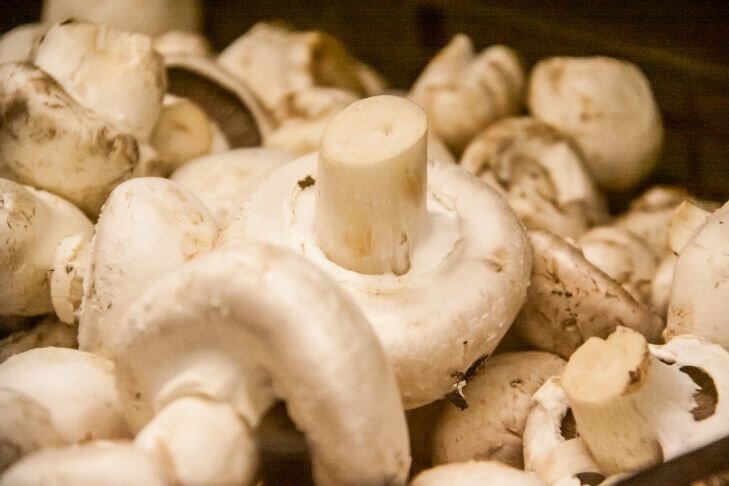The most popular mushroom in the kitchen is the champignon. This mushroom does not require special processing and it is believed that it is impossible to get poisoned by it.
But this does not mean that the mushroom is equally good and useful for everyone without exception. Even champignons have harmful properties.
Roskachestvo reports on who should not eat champignons and what benefits they have, citing nutritionist Elena Syurakshina.

Benefits of champignons
These mushrooms contain B vitamins and most of all vitamins B5 and B2. Vitamins C, D and PP are present.
Useful elements include cobalt, copper, chromium, potassium, phosphorus and selenium, zinc, molybdenum, manganese, iodine, silicon and magnesium.
Mushrooms are also a source of plant protein and antioxidants that protect the body from free radicals and chronic diseases.
Mushrooms are also a natural antibiotic.
They normalize cholesterol levels, blood pressure and are good for bones.
Harm of champignons
It's all about the abundance of chitin, a hard-to-digest fiber.
Because of this, mushrooms are difficult to digest, especially when consumed in large quantities.
Allergic reactions are also possible, but this is an exception. You can avoid trouble if you do not buy mushrooms from hands, but only from trusted suppliers.
Champignons are contraindicated in the presence of gastrointestinal diseases and exacerbation of pancreatitis.
Earlier we talked about what snacks you can eat on a diet .
